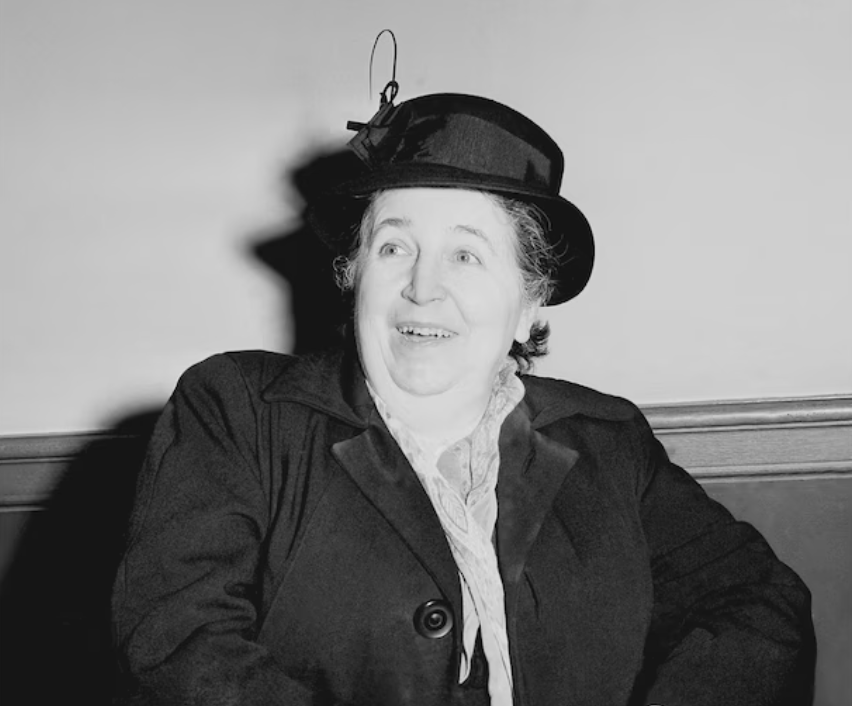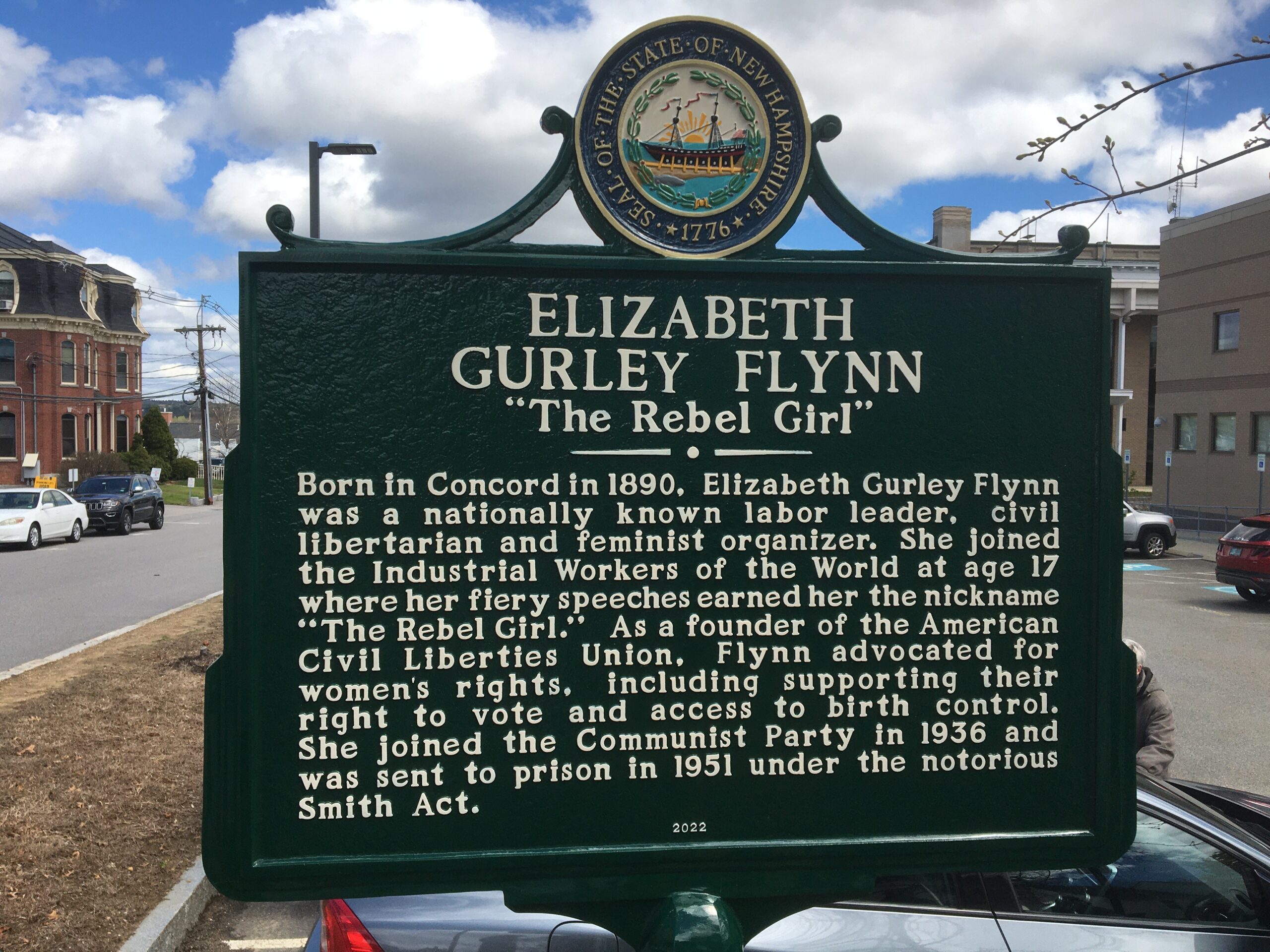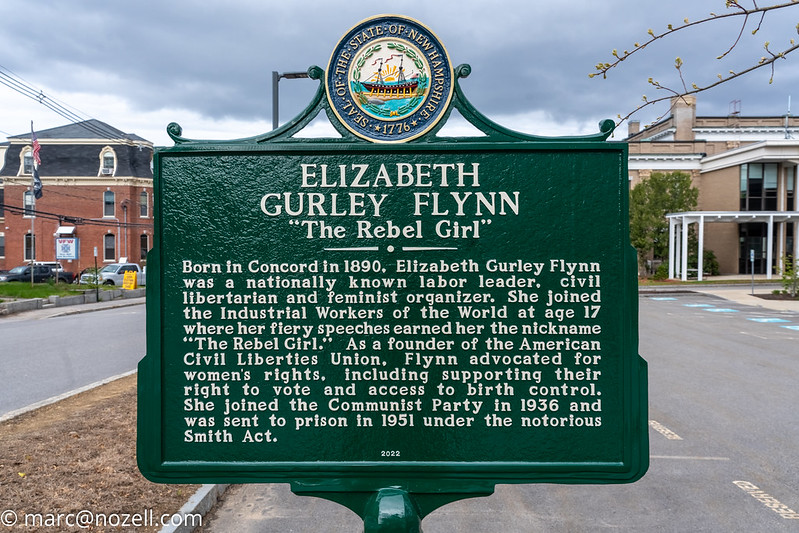‘Long Live the Revolution!’ Activists Keep Legal Fight Over Rebel Girl Marker Alive

Historical figures of New Hampshire, unite! You have nothing to lose but your state-funded highway markers.
The sponsors of a since-removed Historical Highway Marker honoring Concord-born Communist Elizabeth Gurley Flynn are appealing the dismissal of their lawsuit against the state. They argue no person from the Granite State’s past is safe from having their legacy erased from the public record — a common practice in Josef Stalin’s Soviet Union.
Attorney Andru Volisnky says Merrimack Superior Court Judge John Kissinger was wrong when he ruled against left-wing activists Arnold Alpert and Mary Lee Sargent, who supported the effort to have the state honor Flynn. Volinsky warned Kissinger’s ruling opens the door for anyone having their marker removed arbitrarily by the state.
“The court’s ruling protects the decision to remove the marker no matter the reason,” Volinsky wrote in his motion for reconsideration. “All removal decisions are protected from review by the court’s ruling on standing. No one could challenge a similar decision to remove a marker because the subject of the marker was a Republican or Democrat, woman, LGBTQIA, Black, Brown, Asian, or any other factor an executive councilor or a governor deems objectionable.”
The state removed the marker honoring Flynn last May, weeks after it was posted by the state’s Department of Natural and Cultural Resources. When more details about Flynn’s background became public — like her lifelong support for Soviet Communism and her state funeral in Moscow’s Red Square — several members of state government, including Gov. Chris Sununu, called for the marker to be removed.
Alpert and Sargent worked for months to collect signatures as part of the process to get the marker approved and installed. They filed the lawsuit challenging the subsequent removal, claiming the state did not follow its own procedures.
“The purpose of the marker program is educating the public about places, events, and people of historical significance, a category which certainly includes Elizabeth Gurley Flynn,” Sargent said. “There is no provision in statute or in the rules governing the marker program that says established markers can be removed based on ideological rather than historical grounds.”
Kissinger’s March 20 dismissal, however, found neither Alpert nor Sargent have the legal right to challenge a decision that belongs to the state. The marker’s creation and installation was paid for by the DNCR, and it was installed on state-owned property in Concord.
“While no one disputes the time and effort expended by the plaintiffs in relation to the Flynn marker, the court finds no support for a determination that such efforts give rise to a legal right, interest, or privilege protected by law,” Kissinger wrote.
Flynn, a labor activist, women’s rights pioneer, and founder of the American Civil Liberties Union, was born in Concord in 1890. She joined the Communist Party in 1936, a time when many Americans were abandoning it in response to Stalin’s purges. Flynn remained an unapologetic Stalinist, and as a result was kicked out of the ACLU in the 1940s.
Flynn was convicted in 1951 under the Smith Act for supporting a Communist revolution in the United States. She would eventually go on to lead the Communist Party USA. In 1964, she died while in Russia. An estimated 25,000 people attended her funeral in Red Square.




